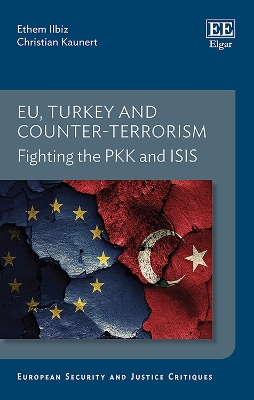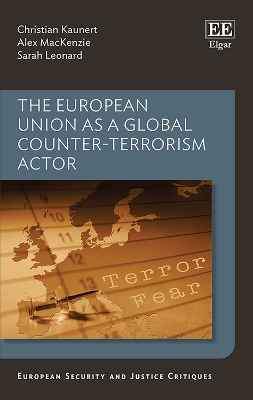European Security and Justice Critiques
2 total works
EU, Turkey and Counter-Terrorism - Fighting the PKK and ISIS
by Ethem Ilbiz and Christian Kaunert
The book analyses the EU's normative role in Turkey during four distinct periods: the inertia (1984-1999), the conditional transformation (1999-2004), the social transformation (2004-2015), and the backsliding periods (2015-2020). Ethem Ilbiz and Christian Kaunert consider how the paradigm shifts in Turkish counter-terrorism policies that occurred during these periods have their basis in different domestic and EU-level factors. Exploring the EU's relations with candidate countries, the book highlights how its influence on Turkey is connected to the viable prospect of Turkey's membership.
Examining one of the most important policy areas of European integration, this book will be critical reading for academics and students of European politics and policy, international relations, terrorism and security, and regional studies. It will also be beneficial for practitioners, politicians, and non-governmental and civil society organizations.
The European Union as a Global Counter-Terrorism Actor
by Christian Kaunert, Alex MacKenzie, and Sarah Leonard
Analysing one of the most important policy areas of European integration, authors Christian Kaunert, Alex MacKenzie and Sarah Leonard consider the key question of why the EU may have become a global actor in counter-terrorism. The authors then develop a unique theoretical approach in the form of actorness and collective securitization, which analyses the EU’s evolution as a counter-terrorism actor in different case studies, such as counter-terrorism in the transatlantic relationship, North Africa, the Middle East and South Asia. Overall, this book highlights that the EU is, in fact, becoming a counter-terrorism actor of growing importance and with an ever-diversifying number of policy options available.
Addressing topical matters, this book will be a key resource for scholars, researchers and students in fields such as European studies, international relations, political science and governance. It will also attract the attention of practitioners, politicians, non-governmental and civil society organisations.

